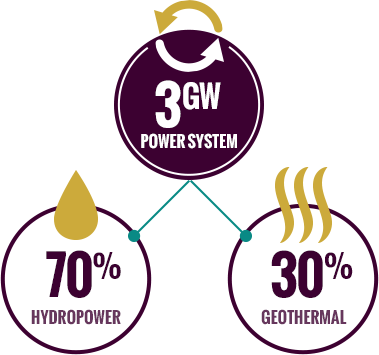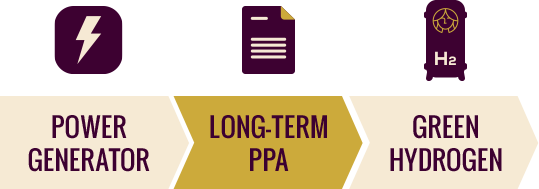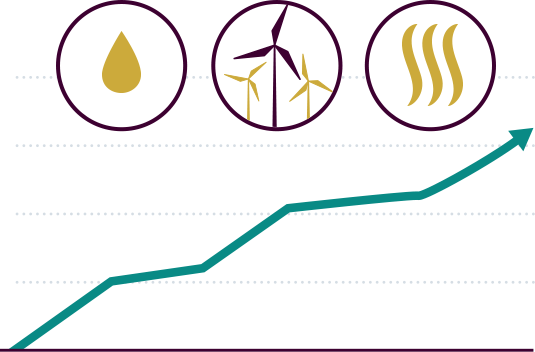Iceland’s Hydrogen Advantage
Many of the world’s economies are focused on hydrogen’s enormous decarbonization potential in sectors that are difficult to decarbonize. Iceland is in an advantageous position to produce and utilize green hydrogen at scale. Why?
The Icelandic Power System
Iceland has plentiful, low-cost, and 100% renewable electricity, which is why 5% of global aluminum production outside of China takes place in Iceland, a country of 350,000 people (yes, only 350,000 people). The 3GW power system is entirely renewable. 20 TWh of renewable power were produced in 2018, with 70% from hydropower and 30% from geothermal resources. The system has been fairly rapidly built out in the last 50 years, largely servicing power intensive customers. The system is isolated, with no physical connection to other power systems.


Competitively priced, long-term PPAs
Green hydrogen production is power intensive, with power costs representing about half of the total lifetime costs of a hydrogen production facility. Competitively priced, long-term PPAs are available to hydrogen producers from a number of established and reliable producers of renewable electricity on the Icelandic market. These power producers are subject to the same EU single-market rules as the rest of the commercial energy producers in the EEA countries. The economies of scale principle applies strongly to hydrogen production, with the potential for cost reduction increasing with larger production facilities.

Proven Track Record in Servicing Energy-Intensive Industry
Iceland has over 60 years’ experience in servicing aluminum smelters and other demanding industries. This means that the power system is one the world’s most reliable and there is significant built-up knowledge and capacity in technical services, despite our small size. There are several industrial harbors and a mature shipping and logistics sector, servicing both aluminum and the sizable sustainable fisheries sector.
Ample Land and Water
Iceland has ample water and land availability. Water is one of the two essential components to hydrogen production, and Iceland’s freshwater resources are ample. The country is sparsely populated, with a number of zoned sites ready for development. Environmental stewardship is taken seriously in Iceland, where both the power sector and industry have taken bold action to minimize their lasting effect on Iceland’s pristine nature.


Supportive Policy Framework
Hydrogen development has enjoyed significant government support in recent years and will continue to do so. Iceland’s Minister of Tourism, Industry and Innovation, Thórdís Kolbrún Reykfjörd Gylfadóttir, has taken significant action to support the domestic production of renewable fuels, including it as a pillar in her recent Energy Policy. Hydrogen also enjoys support through Iceland’s Climate Action Plan, with a specific action outlined for land transport.

History of Hydrogen Utilization
In Iceland, there is an unusually long, 17-year history, of utilizing green hydrogen in transport. Iceland is home to the world‘s first commercial filling station, which opened in 2003 in a project led by Iceland New Energy, a public-private venture founded to elminate the use of fossil fuels in Iceland. Fuel cell buses were demonstrated and tested in Reykjavík from 2003 to 2007. There have been a number of hydrogen projecy operated since then, including the most recent, in which 20 passenger cars are in operation along with two hydrogen refueling stations and an electrolyzer.

